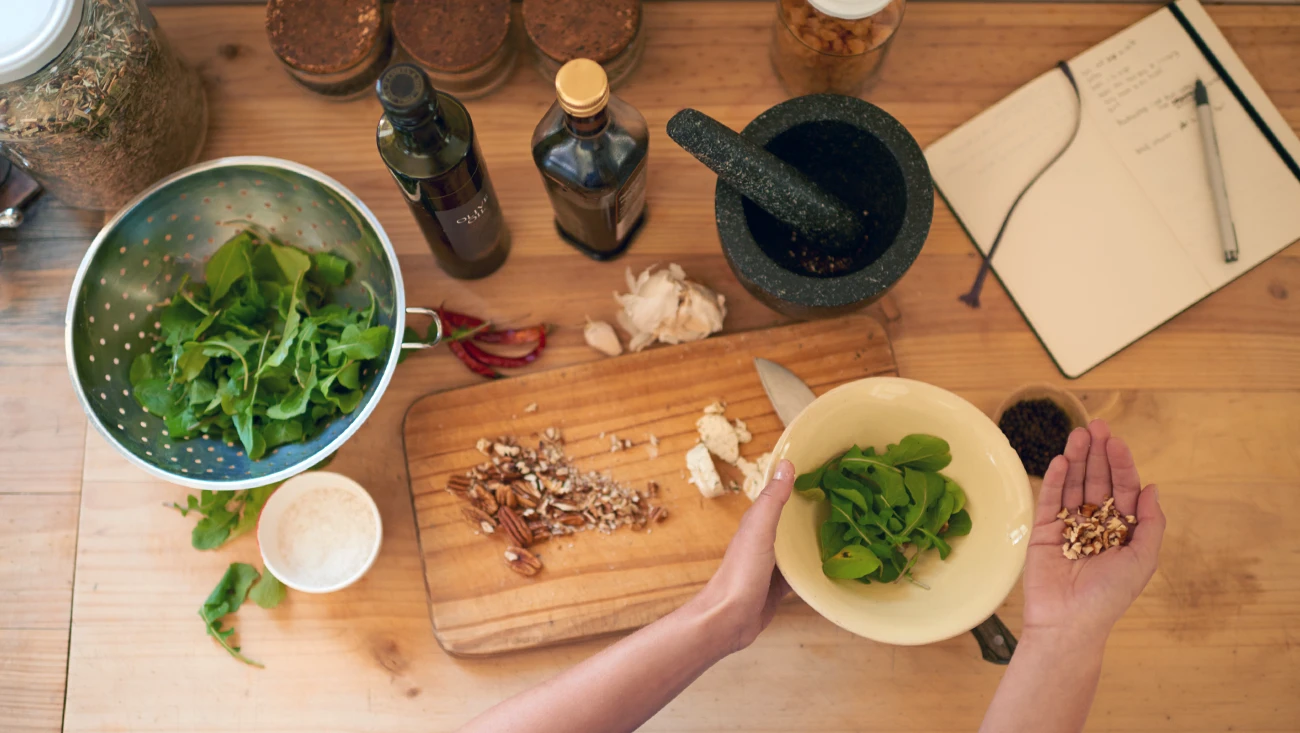Here’s how you can use Chinese medicine principles to transform your relationship with food:
Eat According to the Seasons
TCM teaches that our bodies are deeply connected to nature’s cycles. Each season corresponds to an organ system and element, guiding what we should eat:
– Spring (Liver/Wood):
Light, fresh foods like sprouts, leafy greens, and sour flavours to cleanse and energise.
– Summer (Heart/Fire):
Cooling foods like watermelon, cucumber, and mint to counteract heat.
– Late Summer (Spleen/Earth):
Sweet, grounding foods like squash, carrots, and grains to support digestion.
– Autumn (Lungs/Metal):
Pungent foods like garlic, onions, and pears to strengthen immunity.
– Winter (Kidneys/Water):
Warming, nourishing foods like stews, root vegetables, and salty flavours to build reserves.
Eating seasonally helps your body stay in sync with the environment and supports organ health.
Balance Yin and Yang in Your Meals
Yin and Yang represent opposing yet complementary forces – cool vs. warm, moist vs. dry, passive vs. active. Foods also carry these qualities:
– Yin foods: Cooling, moistening – like tofu, cucumber, watermelon, dairy
– Yang foods: Warming, drying – like ginger, lamb, cinnamon, onions
If you tend to feel cold, fatigued, or sluggish, increase Yang foods. If you’re overheated, anxious, or inflamed, lean into Yin. The goal is dynamic balance, not rigid rules.
Support Your Digestive Fire (Spleen Qi)
In TCM, the spleen is the powerhouse of digestion. To keep it strong:
– Eat warm, cooked meals – raw and cold foods can dampen digestion
– Avoid overeating or skipping meals
– Minimize damp-producing foods like sugar, dairy, and greasy fried items
– Chew thoroughly and eat mindfully
A strong spleen means better energy, clearer thinking, and fewer digestive issues.
Food as Medicine, Not Just Fuel
TCM views food as a form of healing. Every ingredient has energetic properties—some tonify Qi, others move blood, clear heat, or calm the spirit. For example:
– Goji berries nourish the liver and eyes
– Black sesame seeds support kidney essence
– Lotus root clears heat and calms the lungs
By understanding these properties, you can tailor your diet to your body’s needs.
Final Thoughts
Chinese medicine doesn’t ask you to count carbs or chase trends – it invites you to listen to your body, honour the seasons, and eat with purpose. Whether you’re looking to boost energy, improve digestion, or simply feel more grounded, Chinese Medicine offers a timeless roadmap to nourishment.
So next time you prepare a meal, ask yourself: Is this food warming or cooling?
What organ does it support? How does it make me feel?
Your plate becomes a practice.
Your kitchen, a healing space.
**Please note: I may offer basic lifestyle and dietary advice to my acupuncture patients. I would always recommend you consult a qualified nutritionist for specialist dietary advice.**





Joan
Proin sed libero enim sed faucibus turpis. Etiam tempor orci eu lobortis elementum nibh tellus. Nibh cras pulvinar mattis nunc sed blandit libero volutpat dapibus ultrices.